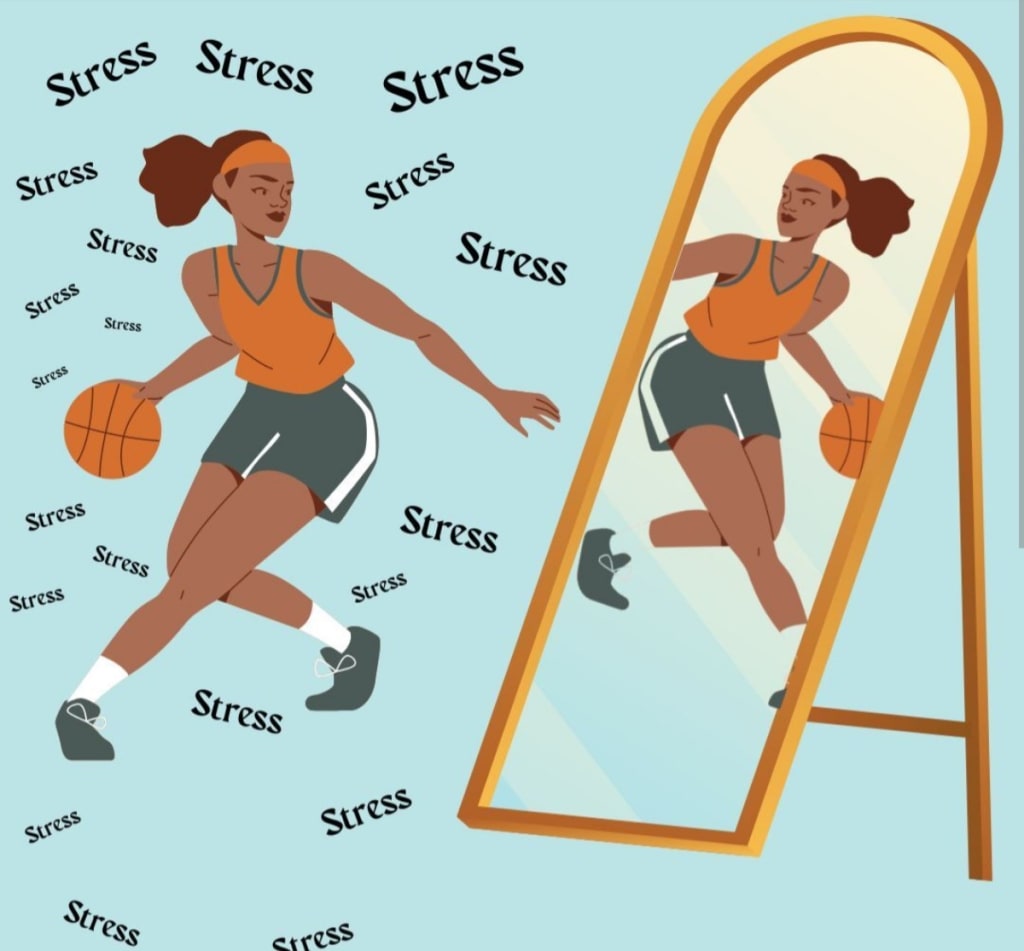The Mental Health Benefits of Playing Sports
DRIBBLING INTO HAPPINESS

Engaging in sports goes beyond physical fitness; it significantly contributes to our mental well-being. Whether you're dribbling a basketball, kicking a soccer ball, or swinging a racket, the impact on mental health is profound and multifaceted. Here’s how playing sports can benefit our mental health:
1. Stress Relief and Mood Enhancement
One of the most immediate benefits of playing sports is its ability to reduce stress and improve mood. Physical activity stimulates the production of endorphins, often referred to as the "feel-good" hormones. These chemicals in the brain help alleviate feelings of stress and anxiety while promoting a sense of happiness and relaxation. The act of focusing on the game or activity also distracts from daily worries, providing a mental break and enhancing overall well-being.
2. Boosting Self-Esteem and Confidence
Regular participation in sports can significantly boost self-esteem and confidence levels. As individuals improve their skills and physical abilities through practice and competition, they develop a sense of accomplishment and pride in their achievements. Successes in sports, whether small or large, contribute positively to self-image and belief in one's capabilities. This enhanced self-esteem transcends the sports arena, influencing various aspects of life and promoting a more positive outlook.
3. Building Resilience and Mental Toughness
Sports inherently involve challenges and setbacks, from losing a game to facing tough opponents. Such experiences provide opportunities to build resilience and mental toughness. Athletes learn to cope with adversity, manage stress under pressure, and develop strategies to overcome obstacles. These skills are invaluable in navigating life's challenges outside of sports, fostering a resilient mindset that helps individuals persevere through difficulties and setbacks.
4. Improving Cognitive Function and Mental Sharpness
Physical activity associated with sports has been linked to improved cognitive function and mental sharpness. Regular exercise enhances blood flow to the brain, promoting the growth of new brain cells and improving overall brain function. Studies have shown that individuals who engage in sports exhibit better concentration, enhanced memory, and quicker decision-making abilities. These cognitive benefits contribute to improved academic and professional performance, as well as overall mental acuity throughout life.
5. Social Connection and Support
Participating in sports provides opportunities for social interaction and connection with others who share similar interests. Team sports, in particular, foster camaraderie, cooperation, and a sense of belonging among teammates. These social connections are vital for mental health, as they provide emotional support, encouragement, and a sense of community. Whether playing on a team or participating in recreational leagues, sports create environments where friendships flourish, reducing feelings of loneliness and isolation.
6. Stress Management and Better Sleep
Regular physical activity through sports contributes to better stress management and improved sleep quality. Exercise helps regulate the body's stress response system, reducing levels of cortisol, a hormone associated with stress. This reduction in stress hormones contributes to a more restful sleep pattern, enhancing overall mental and physical recovery. Adequate sleep is essential for optimal mental health, as it supports cognitive function, emotional regulation, and overall well-being.
7. Enhanced Emotional Regulation and Mental Health
Engaging in sports promotes better emotional regulation and overall mental health. Physical activity triggers the release of neurotransmitters like serotonin and dopamine, which play crucial roles in regulating mood and emotions. Regular participation in sports can help alleviate symptoms of depression and anxiety, providing a natural and effective way to manage mental health conditions. The structured nature of sports activities also promotes discipline and routine, which are beneficial for maintaining mental health stability.
Conclusion
In conclusion, playing sports offers numerous mental health benefits that extend far beyond physical fitness. From stress relief and mood enhancement to boosting self-esteem and resilience, sports contribute positively to our overall well-being. By promoting social connection, enhancing cognitive function, and improving emotional regulation, sports play a pivotal role in supporting mental health throughout life. Whether you're a seasoned athlete or a recreational enthusiast, incorporating sports into your routine can be a powerful tool for achieving and maintaining optimal mental health. So, grab your gear, hit the field, court, or track, and enjoy the holistic benefits that sports have to offer for your mind, body, and soul.
About the Creator
Enjoyed the story? Support the Creator.
Subscribe for free to receive all their stories in your feed. You could also pledge your support or give them a one-off tip, letting them know you appreciate their work.





Comments
There are no comments for this story
Be the first to respond and start the conversation.